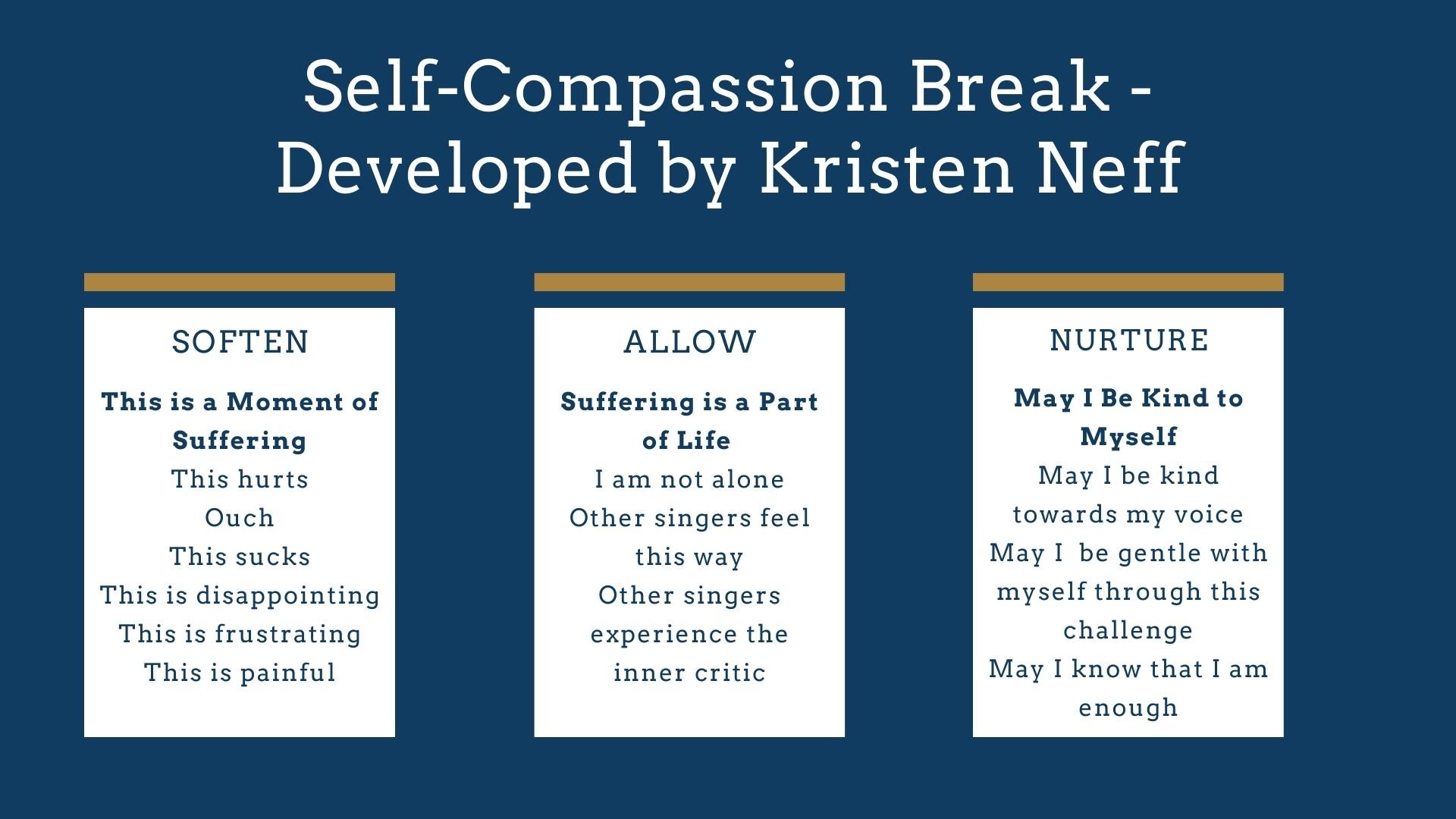An Antidote For the Inner-Critic
You’re hitting that same wall over and over again. Your tuning on that one phrase is not quite right. You can’t get your jaw to release on that high note. You want a more powerful mix and all your getting is a more airy sound. You can’t create the dramatic decrescendo you are envisioning. You really just don’t like the sound of your own voice!
Moments of frustration like this can often lead to the arrival of the inner-critic; that cruel internal voice that throws harsh criticism our way as we navigate vocal challenges. It can be a truly hurtful voice - one that seems to know just the right thing to say to make us walk away from our practice feeling defeated and heart broken.
If you have experienced the inner critic, there is something essential you must know: you are not alone. I would argue that sadly almost every singer has navigated similar harsh internal dialogue. And I don’t say this to downplay your experience but rather to encourage you that you are surrounded by a community of singers who have dealt with and worked with similar challenges.
So why, if it’s so common, am I spending time discussing it? Can’t we just toughen up and move on? Can’t we just ignore the inner critic?
Unfortunately, attempting to ignore the inner-critic often only makes it worse.
The experience of the inner critic hurts. And that experience of emotional pain is echoed in our voices. When the inner critic looms large in our singing practice, we experience a lack of internal safety. This lack of safety can lead to physical tension, difficulty producing sound, inhibited breath flow and a barrier to accessing tools such as consistency, curiosity and creativity which are essential for our vocal growth. We are much less likely to embrace practice and process when the experience involves harsh internal dialogue.
So how can we support ourselves when the inner-critic shows up?
One simple practice we can explore is self-compassion, defined below by lead researcher Dr. Kristen Neff:
"Self-compassion entails being warm and understanding toward ourselves when we suffer, fail, or feel inadequate, rather than ignoring our pain or flagellating ourselves with self-criticism. Self-compassionate people recognize that being imperfect, failing, and experiencing life difficulties is inevitable, so they tend to be gentle with themselves when confronted with painful experiences...”
The next time the inner-critic spews something especially painful at you as you sing you can consider exploring a “Self-Compassion Break,” designed by Kristen Neff. Simply pause, take a deep breath and move through the following three steps:
Softening: Acknowledge that the experience of inner criticism is painful.
Allowing: Recognize that this experience is common and you are not alone.
Nurturing: Ask yourself what you might need to hear in this moment and offer yourself compassionate phrases.
As you go through each step, gently and kindly offer yourself the phrases in each category. You can explore creating your own wording or use the wording I have suggested below which is my own “singer’s variation” based on Neff’s work:
Taking a moment to acknowledge that experiencing the inner critic is painful, that we are not alone in struggling with it and asking ourselves what we might need to hear amidst this struggle, is a powerful practice.
The ultimate question that is at the heart of this practice, and the heart of all self-compassion work is the question, “What do I need?”
After the self-compassion break, offer yourself this inquiry and see what arises for you.
You might realize that you need to go for a brisk walk, meditate, reach out to a close singer friend, journal, dance, connect with your singing teacher, explore different music or shift your approach.
This question of “what do I need?” honours our humanity and helps us to step out of the inner-critic loop and into nourishing ourselves and our vocal development.
Try it out and let me know what you discover!

